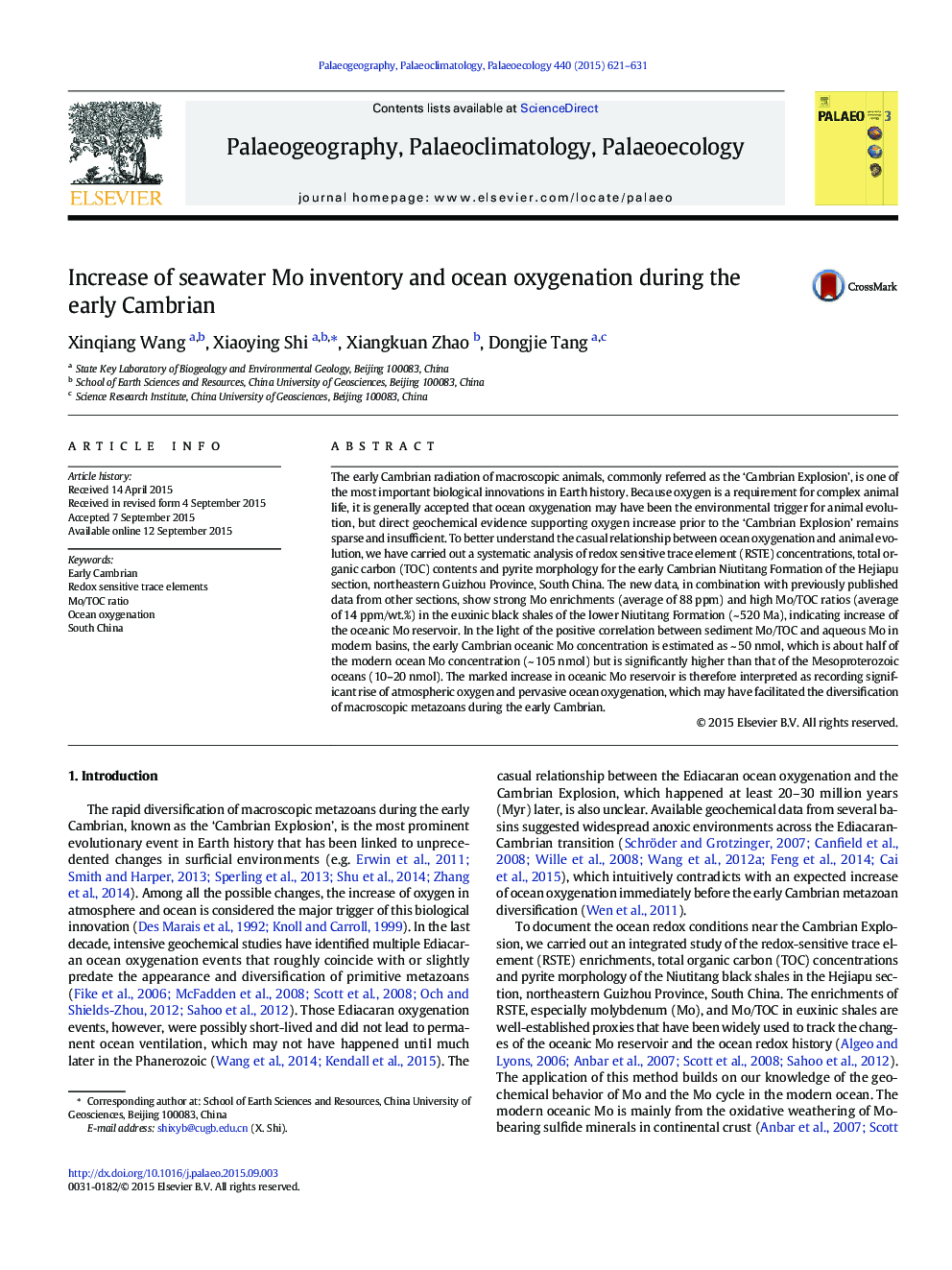| کد مقاله | کد نشریه | سال انتشار | مقاله انگلیسی | نسخه تمام متن |
|---|---|---|---|---|
| 6349562 | 1622150 | 2015 | 11 صفحه PDF | دانلود رایگان |

- Strong Mo enrichment and high Mo/TOC record in the lower Niutitang Formation
- The seawater Mo level during the early Cambrian was ~Â 50Â nmol.
- High Mo level indicates pervasive ocean oxygenation during the early Cambrian.
- Ocean oxygenation and large Mo reservoir facilitated metazoan diversification..
The early Cambrian radiation of macroscopic animals, commonly referred as the 'Cambrian Explosion', is one of the most important biological innovations in Earth history. Because oxygen is a requirement for complex animal life, it is generally accepted that ocean oxygenation may have been the environmental trigger for animal evolution, but direct geochemical evidence supporting oxygen increase prior to the 'Cambrian Explosion' remains sparse and insufficient. To better understand the casual relationship between ocean oxygenation and animal evolution, we have carried out a systematic analysis of redox sensitive trace element (RSTE) concentrations, total organic carbon (TOC) contents and pyrite morphology for the early Cambrian Niutitang Formation of the Hejiapu section, northeastern Guizhou Province, South China. The new data, in combination with previously published data from other sections, show strong Mo enrichments (average of 88Â ppm) and high Mo/TOC ratios (average of 14Â ppm/wt.%) in the euxinic black shales of the lower Niutitang Formation (~Â 520Â Ma), indicating increase of the oceanic Mo reservoir. In the light of the positive correlation between sediment Mo/TOC and aqueous Mo in modern basins, the early Cambrian oceanic Mo concentration is estimated as ~Â 50Â nmol, which is about half of the modern ocean Mo concentration (~Â 105Â nmol) but is significantly higher than that of the Mesoproterozoic oceans (10-20Â nmol). The marked increase in oceanic Mo reservoir is therefore interpreted as recording significant rise of atmospheric oxygen and pervasive ocean oxygenation, which may have facilitated the diversification of macroscopic metazoans during the early Cambrian.
Journal: Palaeogeography, Palaeoclimatology, Palaeoecology - Volume 440, 15 December 2015, Pages 621-631